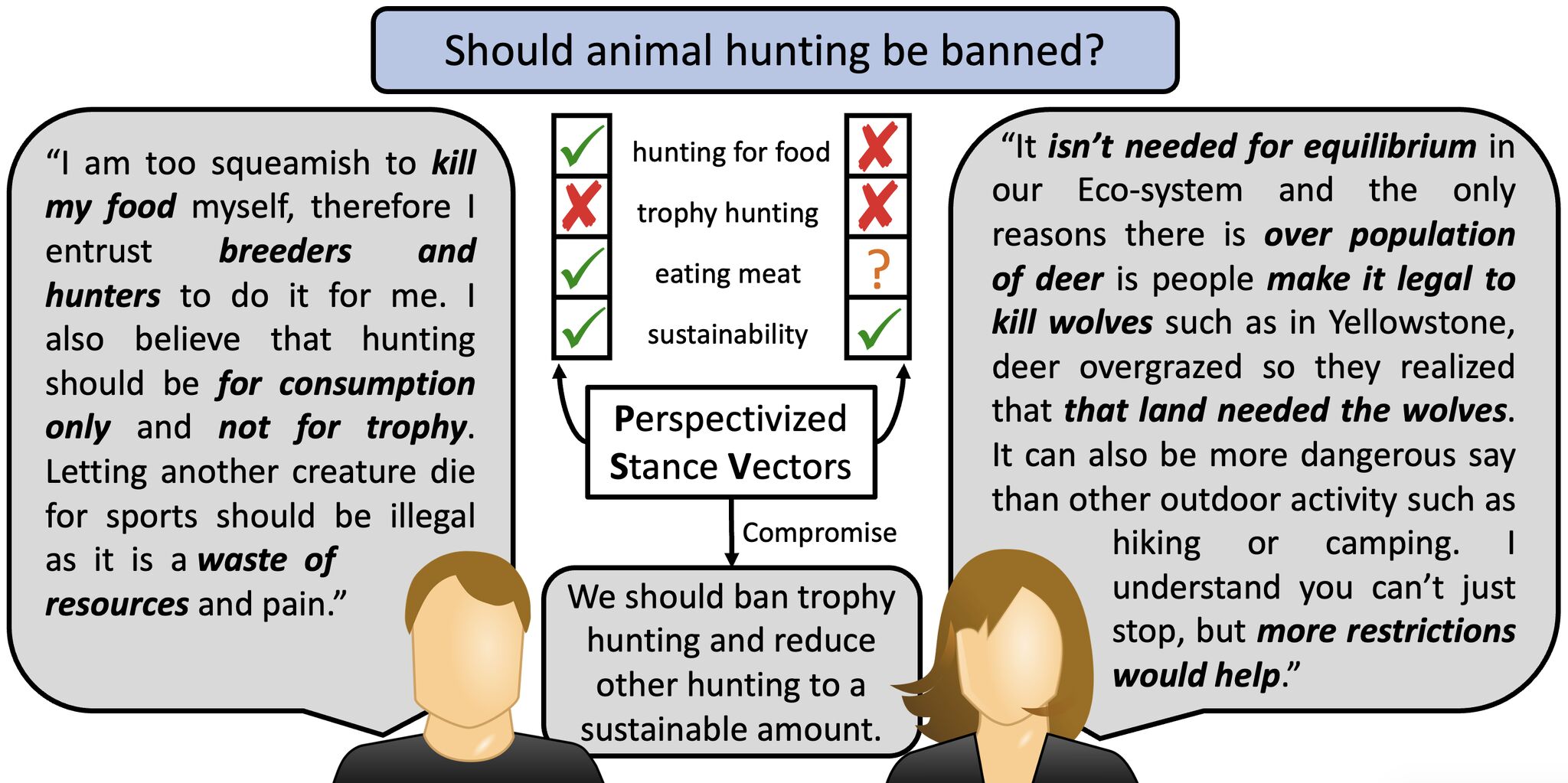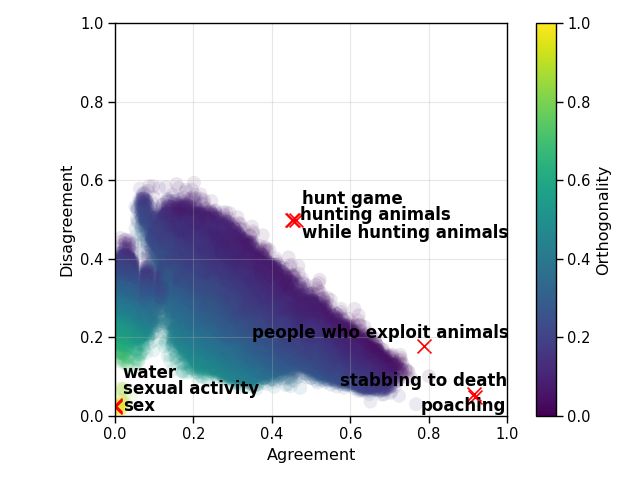Debates aren't always black and white — opposing sides often share common ground. Identifying and leveraging these partial agreements is key to formulating meaningful compromises. Thus, we introduce “Perspectivized Stance Vectors” (PSVs) — an interpretable method to identify nuanced (dis)agreements at scale.

Our approach consists of three steps: 1️⃣ For a given debate topic, we identify signature perspectives representing key viewpoints (e.g., for “Should animal hunting be banned?”: hunting for food, trophy hunting, eating meat, sustainability). 2️⃣ Each argument is then mapped to a Perspectivized Stance Vector (PSV), a structured representation that captures the stance (✅❔❌) toward each perspective. 3️⃣ Finally, we aggregate PSVs to compute (dis)agreement scores, both for individual perspectives and overall argument alignment. In our example (see image) the two arguments agree on “trophy hunting” but disagree on “hunting for food”. For “eating meat” the arguments are orthogonal, meaning that they neither agree nor disagree.
We propose methods for all three subtasks and evaluate them individually using human annotations and automated metrics. After validating our approach, we conduct a case study on real-world data, demonstrating how PSVs analyze debates with a focus on deliberative resolutions. For example, we find signature perspectives that authors tend to agree, disagree, or be orthogonal on (see image below). The paper presents many more details, e.g., considering different stakeholder groups.

Congratulations the authors Moritz Plenz, Philipp Heinisch, Janosch Gehring, Philipp Cimiano and Anette Frank.




